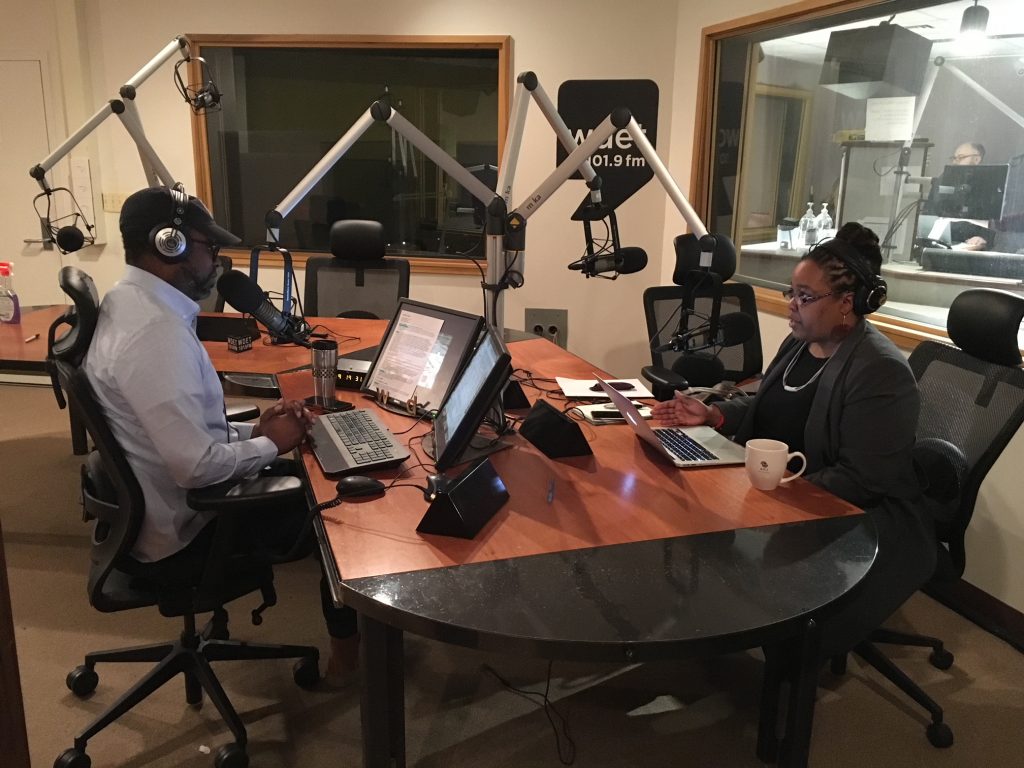Journalist Farai Chideya On Politics, Harassment And New Podcast
“Knowledge is never the problem, it’s the lack of knowledge and the coverup,” says Chideya of our current political landscape and information crisis.

By all standards, Farai Chideya has had a distinguished career as a journalist, author, and radio host.
She has covered every presidential election since 1996. She has worked for news organizations including NPR, CNN, ABC News, FiveThirtyEight, and more. She’s now launching a new radio show and podcast called “Our Body Politic,” which will focus on women of color as a super-demographic in American politics. She also recently wrote a piece titled “How We Save Our Body Politic: Reflections from a Black Female Journalist on America at the Precipice,” which discusses how racism and sexism have affected her life and career as a Black woman in journalism.
Listen: Stephen Henderson and journalist Farai Chideya discuss the state of politics, race and divisions in America.
Guest
Farai Chideya says that when looking at her family’s history, she has been fortunate in that she has been able to trace back multiple generations. Yet, in doing so, she came upon some difficult findings just recently. “Yesterday on Ancestry.com, [an ancestor] popped up and I found that person’s father was a wealthy white plantation owner who sold his mother. Can you imagine?” says Chideya. She explains that finding out about family history helps her to think more critically about the legacy of racial oppression that started centuries ago and can still be felt and seen today. “My family, despite being literate for generations, never had the chance to build wealth like white families,” says Chideya. She also recounts how her grandmother was “blacklisted internally and denied raises. I have her diaries detailing her financial anxiety.”
As far as Chiedya’s own experiences with harassment and hardship in the workplace, she tells Henderson that she was harassed by colleague John Hockenberry at WNYC and told her supervisor who did nothing. “I am outraged that someone who earned $900,000 a year was able to walk away with her package, Hockberry walked away with his package and I walked away with my dignity,” says Chideya. She explains that, as she sees it, this experience was one symptom of a larger culture war that has been brewing for years — long before the 2016 election.
“The reality is that when a lot of white reporters thought Trump could never win, I looked at people like Sheriff Joe Arpaio who didn’t win despite denying rights to immigrants, he won because of that,” says Chideya. She goes on to say that the level of shock among citizens and journalists is a bit confounding considering that “this is our history, the only people who ever won electoral college votes as Independents were segregationists.”
Chideya also discusses the ways that racism has insidiously permeated areas of life including education textbooks and even parenting and the ability to adopt. This, she says, is why it’s so important for people of color to stand up and tell their stories. She says that her podcast comes after witnessing the need for Black talent and Latino/a talent, “because there’s money in it.” She says she thinks “public radio can also learn from that, it’s not based on a for-profit system, [but instead is meant to] serve people of color and white people who want to learn that storytelling is not limited to white people.”
Trusted, accurate, up-to-date
WDET is here to keep you informed on essential information, news and resources related to COVID-19.
This is a stressful, insecure time for many. So it’s more important than ever for you, our listeners and readers, who are able to donate to keep supporting WDET’s mission. Please make a gift today.
